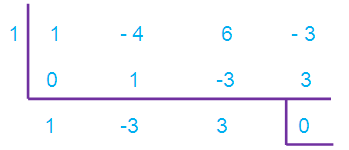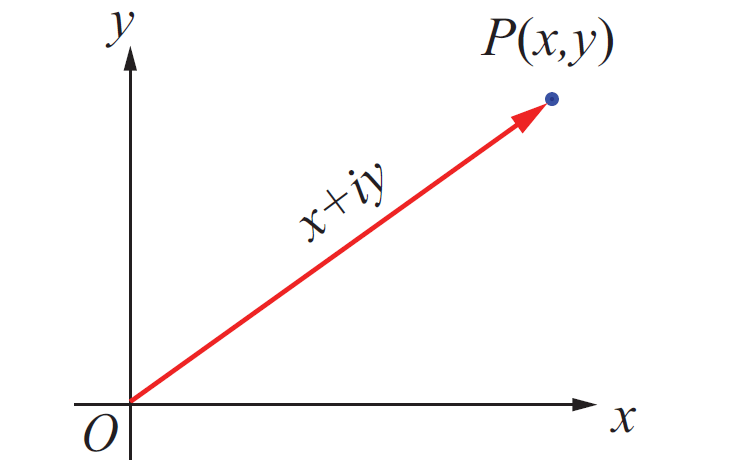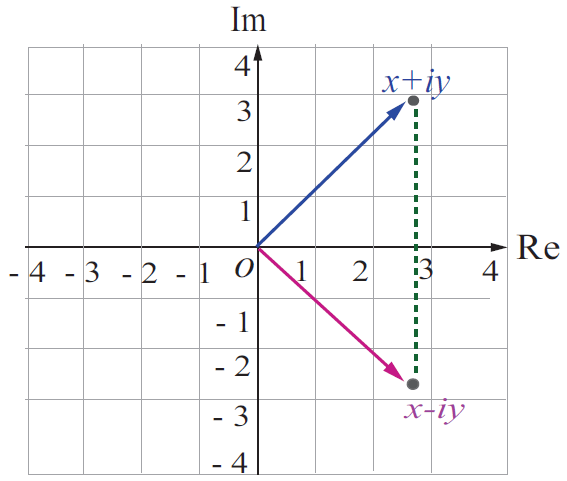FIND OTHER POLYNOMIAL WHEN ONE POLYNOMAILS ITS LCM AND GCD ARE GIVEN
Relationship between LCM and GCD of two polynomials :
LCM(f(x), g(x)) ⋅ GCD(f(x), g(x)) = p(x) ⋅ q(x)
q(x) = [ LCM(f(x), g(x)) ⋅ GCD(f(x), g(x)) ]/p(x)
Example :
Find the other polynomial q(x) of each of the following, given that LCM and GCD and one polynomial p(x) respectively.
(i) (x+1)2 (x+2)2, (x+1) (x+2), (x+1)2 (x+2)
(ii) (4x+5)3 (3x-7)3, (4x+5) (3x-7)2, (4x+5)3 (3x-7)2
(iii) (x4-y4)(x4+x2y2+y4), x2-y2, x4-y4
(iv) (x3-4x) (5x+1), (5x2+x), (5x3-9x2-2x)
(vi) 2(x+1) (x2-4), (x+1), (x+1) (x-2)
(v) (x-1) (x-2) (x2-3x+3), (x-1), (x3-4x2+6x-3)
(vi) 2(x+1) (x2-4), (x+1), (x+1) (x-2)
(i) Answer :
(x+1)2 (x+2)2, (x+1) (x+2), (x+1)2 (x+2)
LCM ⋅ GCD = p(x) ⋅ q(x)
L.C.M = (x+1)2 (x+2)2
GCD = (x+1) (x+2)
p(x) = (x+1)2 (x+2)
q(x) = [LCM ⋅ GCD]/p(x)
q(x) = [(x+1)2(x+2)2 (x+1) (x+2)]/(x+1)2 (x+2)
q(x) = (x+2)2 (x+1)
So, the other polynomial is (x+2)2 (x+1).
(ii) Answer :
(4x+5)3 (3x-7)3, (4x+5) (3x-7)2, (4x+5)3 (3x-7)2
LCM ⋅ GCD = p(x) ⋅ q(x)
LCM = (4x+5)3 (3x-7)3
GCD = (4x+5) (3x-7)2
p(x) = (4x+5)3 (3x-7)2
q(x) = [LCM ⋅ GCD]/p(x)
q(x) = [(4x+5)3 (3x-7)3(4x+5) (3x-7)2]/(4x+5)3 (3x-7)2
q(x) = (3x-7)3 (4x+5)
(iii) Answer :
(x4-y4)(x4+x2y2+y4), x2-y2, x4-y4
LCM ⋅ GCD = p(x) ⋅ q(x)
LCM = (x4-y4)(x4+x2y2+y4)
GCD = x2-y2
p(x) = x4-y4
q(x) = [LCM ⋅ GCD]/p(x)
q(x) = [(x4-y4)(x4+x2y2+y4)(x2-y2)]/(x4-y4)
q(x) = (x4+x2y2+y4)(x2-y2)
So, the other polynomial is (x4+x2y2+y4)(x2-y2).
(iv) Answer :
(x3-4x) (5x+1), (5x2+x), (5x3-9x2-2x)
LCM ⋅ GCD = p(x) ⋅ q(x)
LCM = (x3-4x) (5x+1)
GCD = 5x2+x = x(5x+1)
p(x) = 5x3-9x2-2x ==> x(5x2-9x-2)
x(5x2-9x-2) ==> x (5x+1)(x-2)
q(x) = [LCM ⋅ GCD]/p(x)
q(x) = [(x3-4x) (5x+1)(5x+1)]/[x (5x+1)(x-2)]
q(x) = [(x2-4)(5x+1)]/(x-2)
q(x) = [(x+2)(x-2)(5x+1)]/(x-2)
q(x) = (x+2)(5x+1)
So, the other polynomial is (x+2)(5x+1).
(v) Answer :
(x-1) (x-2) (x2-3x+3), (x-1), (x3-4x2+6x-3)
LCM ⋅ GCD = p(x) ⋅ q(x)
LCM = (x-1) (x-2) (x2-3x+3)
GCD = (x-1)
p(x) = x3-4x2+6x-3
q(x) = [LCM ⋅ GCD]/p(x)
= [(x-1)(x-2)(x2-3x+3)(x-1)]/(x3-4x2+6x-3)
let us use synthetic division to find factors of the cubic polynomial.

= [(x-1)(x-2) (x2-3x+3)(x-1)]/(x-1) (x2-3x+3)
= (x-2)(x-1)
So, the other polynomial is (x-2)(x-1).
(vi) Answer :
2(x+1) (x2-4), (x+1), (x+1) (x-2)
LCM ⋅ GCD = p(x) ⋅ q(x)
LCM = 2(x+1) (x2-4)
GCD = (x+1)
p(x) = (x+1) (x-2)
q(x) = [LCM ⋅ GCD]/p(x)
q(x) = [2(x+1) (x2-4)(x+1)]/(x+1) (x-2)
q(x) = [2(x+1) (x+2) (x-2) (x+1)]/(x+1) (x-2)
q(x) = 2(x+1) (x+2)
So, the other polynomial is 2(x+1) (x+2).

Apart from the stuff given in this section, if you need any other stuff in math, please use our google custom search here.
Kindly mail your feedback to v4formath@gmail.com
We always appreciate your feedback.
©All rights reserved. onlinemath4all.com
Recent Articles
-
First Fundamental Theorem of Calculus - Part 1
Apr 17, 24 11:27 PM
First Fundamental Theorem of Calculus - Part 1 -
Polar Form of a Complex Number
Apr 16, 24 09:28 AM
Polar Form of a Complex Number -
Conjugate of a Complex Number
Apr 15, 24 11:17 PM
Conjugate of a Complex Number

